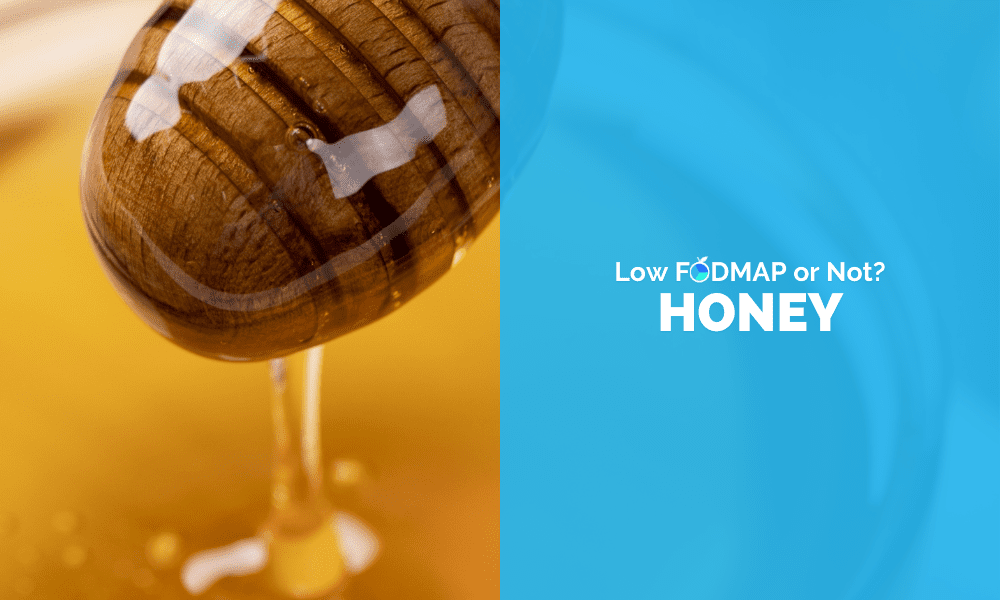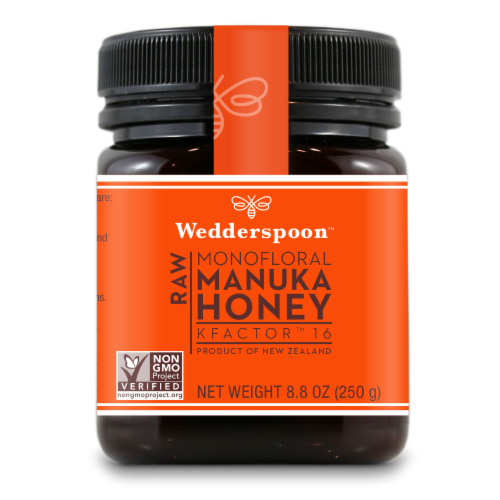
Manuka honey has gained popularity for its potential health benefits, but if you follow a low FODMAP diet, you may be wondering if it is safe to consume. FODMAPs are certain types of carbohydrates that can trigger digestive symptoms in some individuals. In this article, we will explore whether manuka honey is low FODMAP, providing you with the information you need to make an informed decision about including it in your diet.
What is FODMAP?
FODMAP stands for Fermentable Oligosaccharides, Disaccharides, Monosaccharides, and Polyols. These are types of carbohydrates that can be difficult for some people to digest. When consumed in high amounts, FODMAPs can cause symptoms such as bloating, gas, abdominal pain, diarrhea, and constipation. Common sources of FODMAPs include certain fruits, vegetables, grains, dairy products, and sweeteners.
What is Manuka Honey?
Manuka honey is a type of honey that is native to New Zealand and Australia. It is produced by bees that feed on the nectar of the manuka tree (Leptospermum scoparium). This honey is known for its distinct flavor and darker color compared to other varieties of honey. Manuka honey has gained popularity in recent years due to its potential health benefits, particularly for digestive health.

Understanding the Low FODMAP Diet
The low FODMAP diet is an eating plan that aims to reduce the intake of FODMAPs in order to alleviate symptoms of digestive disorders, such as irritable bowel syndrome (IBS). This diet was developed by researchers at Monash University in Australia and has been shown to be effective in managing symptoms for many individuals with IBS.
The low FODMAP diet involves eliminating high FODMAP foods for a period of time and then systematically reintroducing them to determine which specific FODMAPs are triggering symptoms. This allows individuals to identify their personal FODMAP triggers and create a customized diet plan that suits their needs.
Is Manuka Honey Low FODMAP?
Manuka honey contains naturally occurring sugars, which include fructose, a type of FODMAP. However, the process of making honey involves the conversion of these sugars to other compounds, including sucrose and glucose, which are not considered FODMAPs. As a result, the FODMAP content of honey, including Manuka honey, can vary depending on factors such as the floral source and processing methods.
While Manuka honey does contain small amounts of potentially problematic sugars, it is generally considered to be low in FODMAPs. In fact, studies have shown that Manuka honey may have potential benefits for individuals with digestive disorders, such as its antimicrobial properties and ability to promote gut health.

Research on Manuka Honey and FODMAPs
Research specifically focusing on the FODMAP content of Manuka honey is limited. However, studies have been conducted on the FODMAP content of other types of honey, which can offer some insights. A study published in the Journal of the Academy of Nutrition and Dietetics analyzed the FODMAP content of different varieties of honey, including polyfloral, clover, and Manuka honey. It found that all types of honey contained small amounts of FODMAPs, but the levels were generally low.
Additionally, a systematic review published in the Journal of Functional Foods evaluated the effects of honey on IBS symptoms. The review found that honey, including Manuka honey, was generally well-tolerated by individuals with IBS and did not exacerbate symptoms.
While these studies suggest that Manuka honey is likely low in FODMAPs, it is important to note that individual tolerance can vary. It is recommended to consult with a healthcare professional or registered dietitian before incorporating Manuka honey into a low FODMAP diet, especially if you have been diagnosed with a digestive disorder.
Manuka Honey and the Monash University Low FODMAP App
The Monash University Low FODMAP App is a valuable resource for individuals following the low FODMAP diet. This app provides a comprehensive database of foods and their FODMAP content, including information on various forms of honey, including Manuka honey.
According to the app, Manuka honey has been tested for FODMAP content, and the results indicate that it is low in FODMAPs. However, it is important to note that the FODMAP content can vary between different brands and batches of honey. It is recommended to check the specific brand and batch on the app to ensure it aligns with your dietary needs.

Possible Benefits of Manuka Honey for Digestive Health
Although research specifically investigating the effects of Manuka honey on digestive health is limited, there are several potential benefits that make it an attractive option for individuals with digestive disorders.
Firstly, Manuka honey has antimicrobial properties, which means it can help to combat harmful bacteria in the gut. This can be particularly beneficial for individuals with conditions such as small intestinal bacterial overgrowth (SIBO) or those prone to recurrent gut infections.
Secondly, Manuka honey has been found to have anti-inflammatory properties. Chronic inflammation in the digestive system is associated with conditions like IBS and inflammatory bowel disease (IBD). Consuming Manuka honey may help reduce inflammation and alleviate symptoms in these conditions.
Lastly, Manuka honey has a prebiotic effect, meaning it promotes the growth of beneficial bacteria in the gut. This can contribute to a healthier gut microbiome, which plays a crucial role in digestion and overall gut health.
Potential Risks of Manuka Honey on a Low FODMAP Diet
While Manuka honey is generally considered low in FODMAPs, it does contain small amounts of sugars, including fructose, which can be problematic for individuals with FODMAP intolerances. Consuming excessive amounts of Manuka honey or using it as a sweetener in large quantities may trigger symptoms in these individuals.
Additionally, Manuka honey is calorie-dense and high in natural sugars, so it should be consumed in moderation, especially for individuals who need to manage their blood sugar levels or are following a restricted-calorie diet.
How to Incorporate Manuka Honey into a Low FODMAP Diet
If you would like to incorporate Manuka honey into your low FODMAP diet, it is important to do so in moderation and be mindful of portion sizes. The Monash University Low FODMAP App can be a helpful tool in determining the appropriate serving size based on the FODMAP content of the specific brand and batch you are using.
Consider using Manuka honey as a natural sweetener in small amounts, such as in tea, yogurt, or as a topping for low FODMAP fruits. Be sure to monitor your symptoms and consult with a healthcare professional if you experience any adverse effects.
Conclusion
In conclusion, while Manuka honey does contain small amounts of FODMAPs, it is generally considered to be low in FODMAPs. Research suggests that it can be well-tolerated by individuals with digestive disorders such as IBS. However, individual tolerance may vary, and it is important to consult with a healthcare professional or registered dietitian before incorporating Manuka honey into a low FODMAP diet. With proper moderation and monitoring of symptoms, Manuka honey can be a flavorful and potentially beneficial addition to a low FODMAP eating plan.

